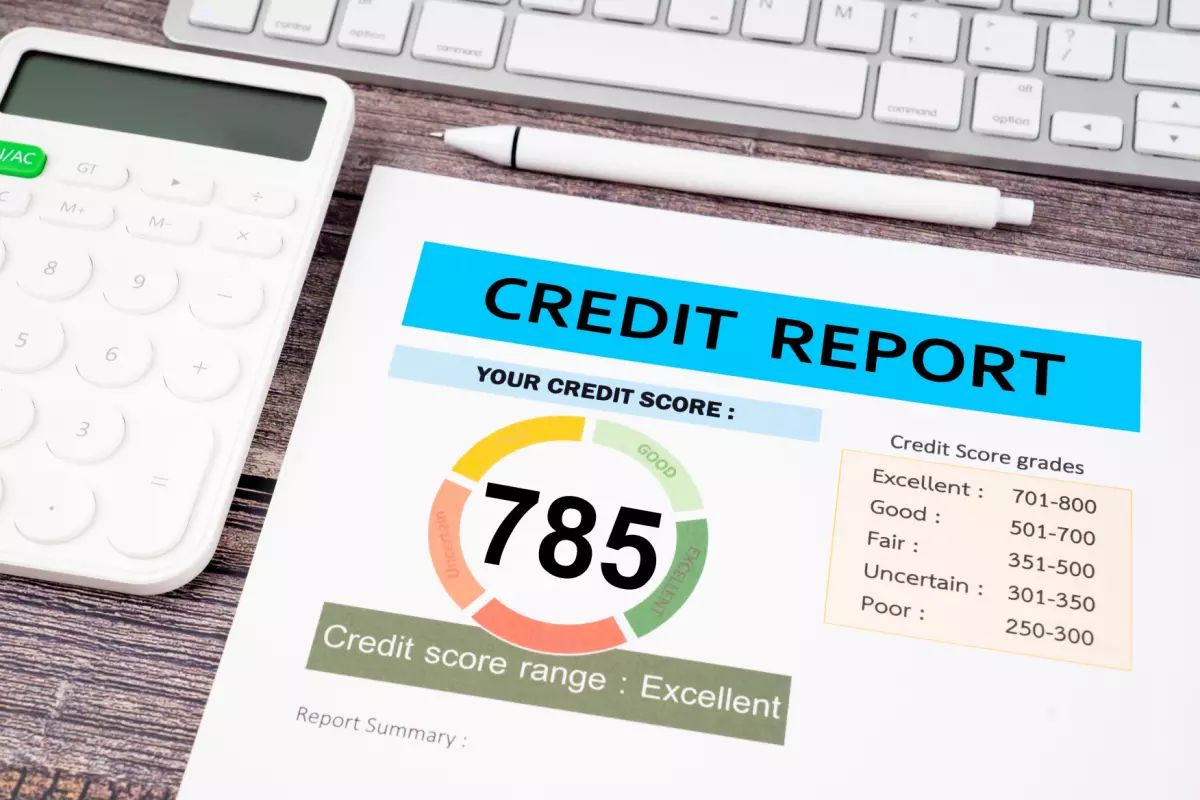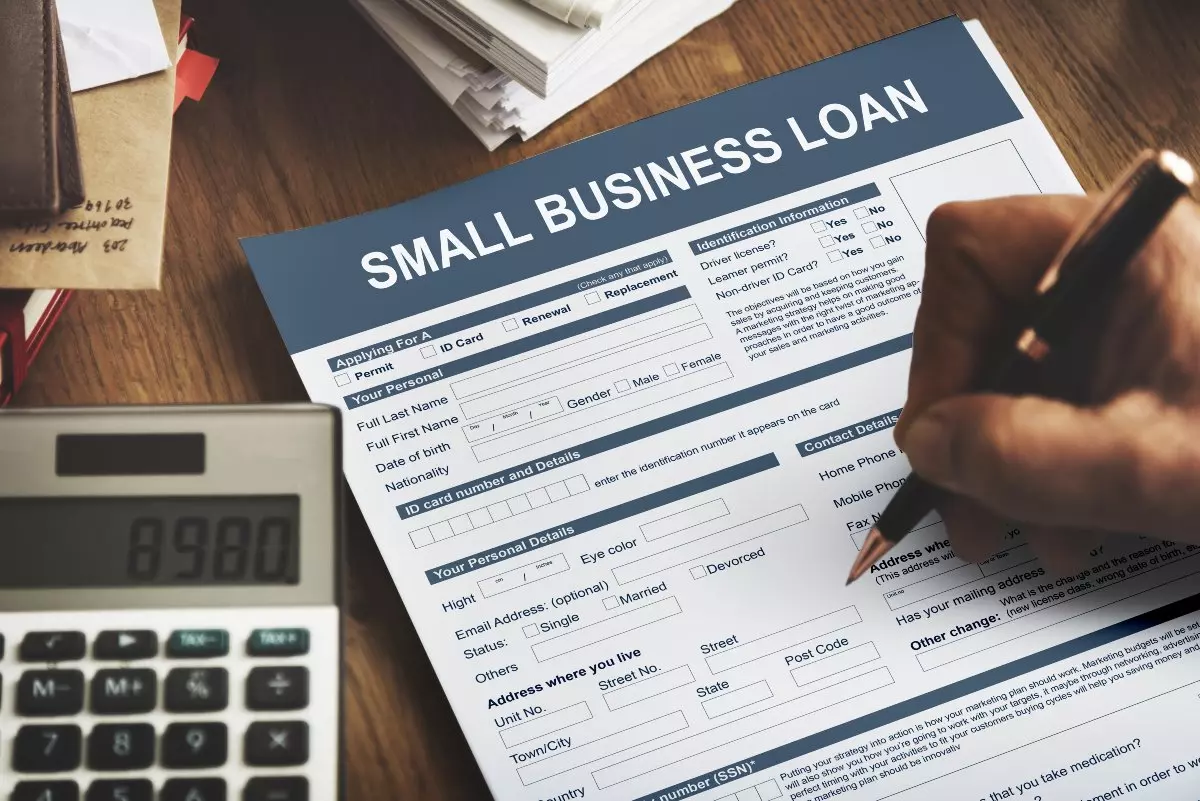Can I Use a Personal Credit Card for Business Expenses? Exploring the Pros, Cons, and Considerations
Business owners and freelancers often wonder if they can use a personal credit card for business expenses. The reality is that the answer isn’t a simple yes or no; it’s nuanced and contingent on various factors.
In this comprehensive guide, we’ll discuss the advantages and disadvantages of using a personal credit card for your business needs and tackle the question from different angles.
Using a Personal Credit Card for Business: Pros and Cons
When managing your business finances, you may wonder: ‘Can I use a personal credit card to pay for business expenses?’ Let’s examine the pros and cons of making this financial decision and how it compares to other credit card types.
Pros
Let’s start by exploring the potential benefits of using personal credit cards for business purposes.
Ease of Approval
One of the most significant advantages of opting for a personal credit card is the simplicity and speed of the approval process. Approval for a personal credit card could take a few weeks, whereas getting a business credit card can take several weeks. If you’re wondering how to get a business credit card, the requirements are usually higher, resulting in lengthier financial and background checks and approval processes.
Business credit cards often require documentation like tax returns, income statements, and a business plan. Personal credit cards typically only need basic personal financial information.
Say you’re a freelance graphic designer who has just started your venture, and your business doesn’t have a long credit history. This can make getting a business credit card more difficult if you can’t meet the requirements. In this case, a personal credit card could be your ticket to immediate financial flexibility.
Rewards and Perks
When considering using a personal credit card for business expenses, one of the most tempting attractions is the range of rewards and perks available. These perks aren’t just useful for personal spending. They can be leveraged to benefit your business as well.
For example, cashback cards may allow you to earn high returns on categories like dining and entertainment. If your business involves client lunches or hosting events, those cashback rewards can add up quickly and reduce operational costs. Likewise, travel reward cards can be particularly advantageous if your business requires frequent travel, as points or miles can be redeemed for flights, hotel stays, or even upgrades, saving your company money in the long run.

While zero-interest cards don’t offer cash or points rewards, they offer an extended period where large business-related purchases can be made without incurring extra interest charges. This is particularly useful for startups or businesses in expansion mode, where upfront capital is often needed but may not be readily available.
Business credit cards also have perks – think expense tracking features or higher spending limits. While useful, these may not provide the immediate tangible benefits that the rewards from a personal card can offer. As such, depending on your specific needs and the nature of your business expenses, a personal credit card might provide rewards that are more directly beneficial to your bottom line.
Initial Low Costs
When it comes to affordability, personal credit cards often have an edge over business cards. For example, many personal credit cards come with no annual fee, whereas the average annual fee for a business credit card can range around $178.
As for interest rates, the average APR for personal credit cards is around 24.45%. In contrast, business credit cards often have an average APR of 16% to 22%. While the range might appear similar, many personal credit cards offer introductory rates as low as 0% for the first 12 to 18 months, a feature less commonly found in business cards.
For instance, if your startup needs to purchase inventory but you’re not yet generating revenue, the low initial costs of a personal credit card can be advantageous. You can secure what you need without additional fees or high-interest rates digging into your limited budget.
Cons
While personal credit cards can offer a variety of benefits for business use, they come with their own set of drawbacks that warrant careful consideration.
Commingling of Funds
The issue with using a personal credit card for business expenses often lies in mixing personal and business transactions, a situation known as commingling. This practice complicates the accounting process, adding extra steps when balancing your books or preparing tax documents, especially when compared to business credit cards for LLCs, which often offer superior expenditure tracking.. It’s an added layer of complexity that requires meticulous record-keeping to avoid errors that could invite scrutiny from tax authorities.

For instance, if you fail to categorize deductions accurately, you open the door to potential auditing risks. Unclassified or misclassified expenses can draw attention during audits, making you more likely to face further scrutiny. This situation is not only time-consuming but also potentially costly. Fines or tax penalties for improper filing could be levied against you, impacting your financial and financial standing.
The time and effort spent disentangling your mixed transactions could be more effectively used on essential business activities. Whether it’s business development, customer service, or product improvement, those hours are valuable and should not be wasted on avoidable accounting complexities.
Limitations in Business Features
Business credit cards often come with features explicitly designed for business use, such as issuing employee cards, expenditure tracking, and even specialized rewards focused on business-related spending categories. These are seldom available on personal credit cards.
Because personal cards lack these specialized features, they may be less suitable for comprehensive business management. For example, the absence of built-in expenditure tracking would likely necessitate manual tracking, which is time-consuming and error-prone.
Similarly, maintaining control over company expenditures becomes more challenging without the ability to issue employee cards with preset spending limits. If you find such features necessary for your business, the limitations of personal credit cards could be a significant downside.
Credit Risk
Using a personal credit card for business-related expenses introduces an inherent risk to your personal credit score. This raises the question: how do business credit cards work regarding credit risk? With a personal credit card, you – the cardholder – are personally responsible for any incurred debt. This means if your business accumulates expenses on a personal card that you’re unable to pay off, your personal credit score will take a hit.

In contrast, business credit cards often insulate your personal credit to some extent. For instance, in the case of a corporate card, the liability typically falls on the business entity, not the individual owner. If the business defaults, assets of the business might be used to cover the debt, and the business credit score gets affected, not yours personally.
A compromised personal credit score could have long-lasting effects, such as difficulties securing loans or mortgages, and often results in higher interest rates. The stakes are high when you use a personal credit card for business, as defaulting could seriously affect your financial standing.
Can I Use a Personal Credit Card for Business?
When considering the use of a personal credit card to cover business costs, factors like your business structure, financial needs, and risk tolerance should be part of your decision-making process.
Below, we explore this question across various business scenarios to provide you with a nuanced understanding.
Small Business Owners and LLCs: Treading Dangerous Waters
For those running a small business as a Limited Liability Company (LLC), using a personal card for business expenses may be more challenging. An LLC is structured to protect you, the owner, from being personally responsible for business debts.
This safety net, known as ‘limited liability,’ serves as a legal firewall between your business and personal finances. But this firewall can crumble when you opt to swipe your personal credit card for business needs. This phenomenon is known as ‘piercing the corporate veil.’
‘Piercing the corporate veil’ is a legal concept that comes into play when the court decides that your business and personal lives are not separate, often due to co-mingling of finances like using a personal credit card for LLC expenses. You may become personally responsible for the business’s debts if this happens. Creditors could target your business assets and your personal belongings, such as your home and savings.
For example, if you operate a small bookstore as an LLC and use your personal credit card to acquire inventory, the lines between your personal and business finances blur. Should the business fail and debts mount, creditors might argue that you’ve effectively erased the limited liability of your LLC, thereby gaining access to your personal assets to settle business debts.
Corporations: A Strict No-No
For corporations, the use of personal credit cards for business expenses is generally not advisable due to strict legal and financial separations between the business entity and its owners or shareholders.
Legally speaking, corporate laws often entail rigorous regulations around financial transactions. For instance, regulations under the Sarbanes-Oxley Act require corporations to maintain accurate financial records, which could be complicated by the use of personal credit cards for business expenditures.
Additionally, many states have their own corporate codes that forbid the commingling of personal and business assets, making using a personal credit card for corporate expenses potentially illegal.
Failure to adhere to these regulations could lead to severe penalties, including fines and even jail time for flagrant violations. This could additionally initiate internal audits or attract regulatory scrutiny, increasing costs and diverting focus from core business activities.
Partnerships: Who’s Liable?
Using a personal credit card for business purposes becomes particularly complicated in a partnership. When one partner decides to use their personal card for a business expense, it raises questions about liability and responsibility.
Take, for example, a legal consultancy partnership. If one partner uses their personal credit card to pay for advertising services, it could muddle the waters about who is responsible for settling that debt. Such ambiguity could lead to internal disagreements without a clear partnership agreement or even legal disputes.

In the United States, partnership laws such as the Uniform Partnership Act (UPA) govern the financial obligations of each partner. The UPA generally holds that each partner is personally liable for partnership debts unless a different arrangement is specified in the partnership agreement.
Failure to adhere to the terms of the partnership agreement, or the lack of one, could lead to civil litigation and potentially damage the partnership itself. Conflicts like this can delay payment and potentially harm the partners’ personal credit scores and the partnership’s business credit profile.
Is It Illegal to Use a Personal Credit Card for Business?
Contrary to popular belief, there’s no explicit law that prohibits the use of a personal credit card for business expenses. However, while this practice may not be illegal per se, it is fraught with potential legal and compliance issues, especially regarding taxation and financial reporting.
Below, we delve into the nuances surrounding the legality and implications of using a personal credit card for business expenses.
The Importance of Accurate Expense Tracking
Accurate expense tracking is the first defense in avoiding potential legal issues. When you use a personal credit card for business transactions, the lines between personal and business expenses can blur, making it challenging to distinguish business meals from personal dinners or business supplies from personal purchases.
Imagine you’re a sole proprietor using a personal credit card to pay for family holidays and business travel. Failing to separate or correctly categorize these expenses could be problematic. For instance, you could mistakenly claim a tax deduction for personal expenses, leading to issues with the IRS. Not only could this result in penalties, but it could also trigger an audit, complicating your financial situation further.
Utilize accounting software that allows you to categorize personal and business expenses rigorously. You might also consider keeping a detailed log of all transactions, including receipts, to corroborate your records.
Tax Ramifications: The IRS Is Watching
Navigating the IRS rules around business expense deductions can be a labyrinthine task, and employing a personal credit card for such expenses adds another layer of complexity to your tax reporting.
Specifically, the IRS requires businesses to follow guidelines in Publication 535, which outlines what constitutes a deductible business expense. To be considered deductible, an expense must be both “ordinary and necessary” while running your business.
An expense is considered “ordinary” if it is common and accepted in your trade or business. For instance, software tools like Adobe Photoshop, Illustrator, and InDesign would be ordinary expenses for freelance graphic designers.
An expense is deemed “necessary” if it is helpful and appropriate for your business. For example, purchasing a high-quality computer would be a necessary expense.
Using a personal credit card can blur the lines between personal and business expenses, making it challenging to meet the IRS’s stringent documentation requirements. For instance, you might inadvertently commingle funds, thus compromising the ‘business-only’ nature of an expense, which could disqualify it from being deductible.

Mistakes or omissions in reporting could attract the IRS’s attention and result in an audit. Consequences of such an audit can be varied, ranging from financial penalties to more serious actions like garnishment of future refunds, depending on the magnitude of the discrepancy.
Always consult a tax advisor to ensure you adhere to all relevant tax laws and regulations. Use software that can segregate personal and business expenses and provide reports that can be directly used for tax filing.
Piercing the Corporate Veil: A Warning for LLCs and Corporations
As previously mentioned, using personal credit cards for business expenses in LLCs and corporations can result in “piercing the corporate veil,” leading to personal liability for business debts.
Say you own an LLC, and you’ve used your personal credit card for substantial business expenses. If your business faces a lawsuit or goes into debt, a court might rule that your LLC doesn’t exist as a separate entity, thus making you personally responsible for business debts.
For example, in the recent case of Woodruff Construction, LLC v. Clark, the defendant, the sole owner of a biosolids management corporation, faced a $410,067 breach of contract judgment. Despite operating as a separate entity for nearly two decades, the court found significant lapses in maintaining distinct financial records for his corporation. Corporate funds had been commingled with his personal finances.
The court ultimately decided that these oversights were sufficient to pierce the corporate veil, holding the defendant personally responsible for the large sum. This case serves as a potent warning to business owners, highlighting the importance of maintaining a clear distinction between personal and business finances.
If your business, structured as an LLC or corporation, faces a lawsuit or substantial debt, a court could rule similarly, arguing that there is no distinct entity separate from you personally. This could mean your personal assets are at risk for covering business debts.
Given these substantial risks, consult a legal expert before making large business-related purchases on a personal credit card, especially in a structure like an LLC or a corporation. While seeking legal advice is wise, it’s also worth noting that using a personal credit card for substantial business expenses inherently puts you at higher legal risk, regardless of consultation. Therefore, using a dedicated business credit card for all business-related expenses is the safest route.
A Word on Employee Reimbursements
In some cases, employees might use personal credit cards for business-related expenses. While not illegal, this practice requires meticulous record-keeping to ensure accurate reimbursements and sidestep any tax implications associated with what are known as “fringe benefits.”
Fringe benefits are considered additional compensation beyond regular salary, like healthcare or retirement contributions. While these benefits can be tax-exempt under certain conditions, failure to properly document and account for them can lead to them being considered taxable income.
For instance, if an employee uses a personal credit card for a business-related expense and the company does not reimburse the individual, the IRS could deem the expense a fringe benefit. As such, the business would then be responsible for paying the appropriate payroll taxes on that amount.
Not reimbursing an employee for such expenses can result in multiple adverse outcomes:
- Legal Action: Employees may be able to sue for not being reimbursed for business expenses.
- IRS Penalties: Failure to account for fringe benefits correctly can lead to penalties, including financial fines.
- Audit Risk: Incorrect reporting can also increase the likelihood of an IRS audit, which could result in additional expenses and back taxes.
For example, employees may use their credit cards to pay for office supplies. The company should have a clearly defined process for submitting expense reports and receipts for reimbursement to avoid any discrepancies or tax issues later.
Consider developing a comprehensive employee expense policy as a helpful guide for managing claims for reimbursement. Consistently maintaining a thorough record of all transactions supported by receipts is a smart practice that can prevent misunderstandings and ensure compliance with tax regulations.
Alternatives to Utilizing a Personal Credit Card for Your Business
While it’s technically possible to use a personal credit card for your business expenses, it is highly discouraged due to the potential legal and compliance issues. This practice can blur the lines between personal and business finances, posing personal liability risks and complicating tax matters.

If you’re looking for alternative ways to fund your operations without tapping into personal credit, consider the following options:
- Small Business Loans: Various types of loans are designed specifically for small businesses, offering relatively low-interest rates and flexible repayment terms.
- Startup Loans: If you’re in the initial stages of your business, startup loans can provide the initial capital to get things off the ground.
- Grants: Federal and state grants are free money that doesn’t need to be repaid. However, they often come with strings attached, like reporting requirements.
- Non-Profit Loan Options: Organizations like Kiva or Accion provide low-interest loans for small business owners who might not qualify for traditional bank loans.
- Crowdfunding: Platforms like Kickstarter or Indiegogo allow you to raise small amounts of money from many people, often in exchange for a product or service.
Regardless of your funding source, maintaining rigorous financial oversight is non-negotiable. Ensure you monitor expenses, stick to budgets, and reconcile discrepancies immediately.
Even with these alternatives, consulting with a legal advisor remains advisable to fully understand any potential legal ramifications associated with your funding choice, especially in an LLC structure.
Conclusion
Using a personal credit card for business has its pros and cons. On the one hand, you get quick approval and potential rewards. On the other, you risk mingling finances and missing out on business-specific features.
The risks might be worth the convenience for freelancers or sole proprietors, but small businesses should think twice. Regardless of your choice, maintain good bookkeeping and seek professional advice for a financially sound decision.
Can I Use a Personal Credit Card for Business Expenses: FAQ
After learning about the pros and cons of using a personal credit card for business, you may still have questions or uncertainties. We’ve compiled a list of frequently asked questions to clear up any lingering doubts.
Can I Use a Debit Card for Business Expenses?
Yes, you can use a debit card, but it is not advised. The biggest concern is that using a debit card for business purchases makes it difficult to separate and track expenses. Also, debit cards draw directly from your business bank account, risking immediate cash flow issues.
Instead, business credit cards help separate funds, making accounting easier and mitigating personal liability.
Will Using My Personal Credit Card for Business Expenses Hurt My Credit?
Yes, it could negatively impact your credit score. If you accumulate significant business expenses and struggle with repayment, it can lead to several credit-related issues. One key factor is the card’s credit utilization rate; if it rises due to high balances, it can lower your credit score.
Furthermore, your credit score may suffer even more if you fail to make timely payments or miss payments altogether. Therefore, it’s vital to monitor your spending and ensure prompt and consistent repayment to maintain a healthy credit profile.
Can I Use a Non-Business (Personal) Credit Card for a Business?
You can, but remember that personal credit cards often have lower credit limits and fewer business-oriented benefits. Exercise caution and be mindful of the financial implications outlined earlier in this article.
Can I Pay Business Expenses From My Personal Account?
Technically, yes, but doing so can complicate your tax filing and could blur the lines between personal and business finances, making audits more challenging.
Can I Use a Personal Bank Account for My Business?
It’s possible, but not recommended, due to the same concerns associated with using a personal credit card for business – such as difficulties in expense tracking, potential tax complications, and legal liabilities.
Table of Contents
- Using a Personal Credit Card for Business: Pros and Cons
- Pros
- Ease of Approval
- Rewards and Perks
- Initial Low Costs
- Cons
- Commingling of Funds
- Limitations in Business Features
- Credit Risk
- Can I Use a Personal Credit Card for Business?
- Small Business Owners and LLCs: Treading Dangerous Waters
- Corporations: A Strict No-No
- Partnerships: Who’s Liable?
- Is It Illegal to Use a Personal Credit Card for Business?
- The Importance of Accurate Expense Tracking
- Tax Ramifications: The IRS Is Watching
- Piercing the Corporate Veil: A Warning for LLCs and Corporations
- A Word on Employee Reimbursements
- Alternatives to Utilizing a Personal Credit Card for Your Business
- Conclusion
- Can I Use a Personal Credit Card for Business Expenses: FAQ
- Can I Use a Debit Card for Business Expenses?
- Will Using My Personal Credit Card for Business Expenses Hurt My Credit?
- Can I Use a Non-Business (Personal) Credit Card for a Business?
- Can I Pay Business Expenses From My Personal Account?
- Can I Use a Personal Bank Account for My Business?